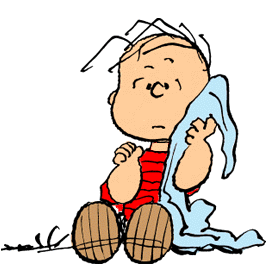"Visions of Cody" has been a major reading project, unexpected, somewhere just shy of taking on "Ulysses", which I found 500 pages in I was not equal to without literary help. Thankfully, having read many Kerouac novels before embarking on this journey, I was able to understand the references to fictionalized history of Neal Cassady (now known as Cody Pomeray), and also the free-flying techniques of "automaticity", or pure mind noise in memories Kerouac strived to employ in his more non-linear bits, so I was OK. So it took me the better part of six weeks to mull over "Visions of Cody", a lot of three-page-and-quit sessions taking in little bits of scenery (San Fran, Denver), a lot of departures (reading also "Fear and Trembling", "St. Lucy's Home...", parts of "One Flew Over the Cuckoo's Nest", Kerouac's own "Scattered Poems", got a great start on my own "Beautiful People Collection), admitted frustration over the mind-chatter employed and sometimes vain and irritating tape bits, engulfing in beauty in its bits of love for the protagonist, the friend, and I'm out the other end today. A long road, but not as long as some -- and ultimately, as goes with Kerouac, rewarding.
It took off like a rocket. Beat-up movie theatres, skid row descriptions, Ginsberg was indeed proud of the unsentimental, gritty, urban, Joyce in the gutter type prose. The background, Cody's ascension to the main scatterbrained man of the Denver underground, the emergences of King Beat, is amazing, Herculean, as he foot races, tackles, shows-off his machismo and mile-per-minute mind.
We are then put right in the living room of the Pomerays as Jack comes to visit, listening to the mad banter of Cody and Jack as they got high, listened to bop, played their instruments, and philosophized in the immediacy of every moment. The cliche of the day is "Live every moment as if it's your last", and you can't help but to feel, in the vibrations of these crazy, sometimes nonsensical, sometimes profound, bits of uncensored talk, that these two were even micromanaging their moments!
The follow-up is Imitation of the Tape, and I can't pretend I totally get it besides, in Allen Ginsberg's notes, "By now the author K.'d obviously gave up entirely on American Lit., on Town & City, on On the Road, on Himself & his history, and let his mind loose. The resulting book is full of charming sounds & jokes, he didn't think he was Finnegan's wake; but some American Mouther Fucker." I love that, Mouther Fucker. To me it's also him imitating through his own isolated literary experiment-trip the mad immediacy of his and Cody's minds in some sort of strange fusion, playing off each other, two chemicals in a deadly bomb. When Evelyn (Cody's wife) pops in with sane questions, she only triggers further insanity. These parts, along with the ensuring re-entry to San Francisco, "Joan Rawshanks in the Fog", can be quite cumbersome due to their intensely personal, inside-story ways, but in retrospect, they are able to represent exactly what Kerouac meant when he spoke tirelessly of automaticity. Something says his friendship with Neal Cassady inspired that more than he'd ever let on.
The true gems of the story, however, belong to the last 60-some pages, almost an alternative version of "On the Road" in many ways, as Kerouac takes the trips from that story, speeds them up into a hypomanic fit, and delivers them with less punctuation and more raucous-ness. It's hard to get sick of him telling the story of his trip to Mexico, and the visions-- such as sitting in the Tropic of Cancer park, and Cody coming to his last will to remember, when prodded about his whorehouse experience on the way down to Mexico City says, surprisingly, "Makes no difference" -- these visions round it out, bring depth to what we've already heard, bulk to this legendary trip. All the insanity further developed, and it's refreshing for Kerouac to step out of his typically linear style to focus on images, vignettes of life, mad moments. In the end, it drove home his admiration of a man he'd follow to the ends of the Earth just to see what IT was really out there.
Though Jack ends on a tender, somber note, believing Cassady was to be lost to traditional marriage, settled times, Ginsberg is quick to note that it is Cassady -- who later reinvented his persona with Ken Kesey and the Pranksters -- who'd see Kerouac's decline from his alcoholism in the early 60s. They'd have their kicks again, but the heart of who they were together lives in the 40s and 50s, in "On the Road", though the fullness of the real Neal Cassady seems most likely immortalized in the pages of "Visions of Cody".
"I stood on sandpiles with an open soul, I not only accept loss forever, I am made of loss -- I am made of Cody, too --"
Below: Cassady is on the left, Kerouac the right
